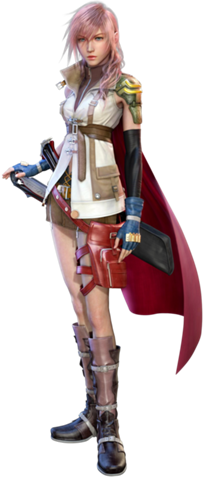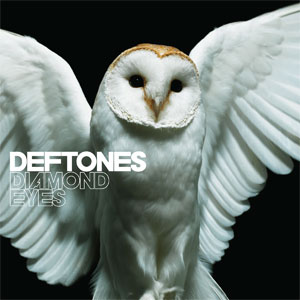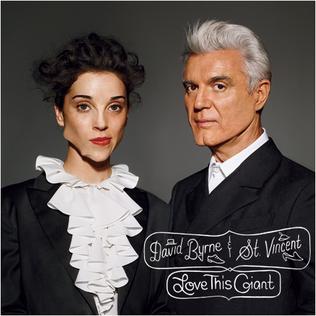
Final Fantasy Chronicles is a compilation of Square's role-playing video games Final Fantasy IV (1991) and Chrono Trigger (1995), released for the North American Sony PlayStation on July 2, 2001. TOSE ported both titles from the Super Nintendo Entertainment System; each had been previously released as individual Japanese PlayStation ports in 1997 and 1999. Several bonus features were added to each game, such as art galleries, bestiaries, and cutscenes—including computer-generated imagery full motion video used at the beginning of Final Fantasy IV and anime scenes used throughout Chrono Trigger.
The Black Mages were a Japanese instrumental rock band formed in 2002 by Nobuo Uematsu, Kenichiro Fukui and Tsuyoshi Sekito, who were three video game composers for Square and Square Enix. The band arranged Uematsu's Final Fantasy video game series-based compositions in a hard rock style often similar to progressive metal, achieved with the additional use of synthesizers. A year later the band expanded to six members with the addition of Keiji Kawamori, Michio Okamiya and Arata Hanyuda. In August 2010, Uematsu announced the band had been disbanded, but he would continue to perform rock arrangements of his music as a part of another similar band, known as the Earthbound Papas.

Final Fantasy XIII is a 2009 role-playing video game developed and published by Square Enix for the PlayStation 3 and Xbox 360 consoles and later for Windows. Released in Japan in December 2009 and international in March 2010, it is the thirteenth title in the mainline Final Fantasy series. The game includes fast-paced combat, a new system for the series for determining which abilities are developed for the characters called "Crystarium", and a customizable "Paradigm" system to control which abilities are used by the characters. Final Fantasy XIII includes elements from the previous games in the series, such as summoned monsters, chocobos, and airships.
Final Fantasy VII is a role-playing video game by Square as the seventh installment in the Final Fantasy series. Released in 1997, the game sparked the release of a collection of media centered on the game entitled the Compilation of Final Fantasy VII. The music of the Final Fantasy VII series includes not only the soundtrack to the original game and its associated albums, but also the soundtracks and music albums released for the other titles in the collection. The first album produced was Final Fantasy VII Original Soundtrack, a compilation of all the music in the game. It was released as a soundtrack album on four CDs by DigiCube in 1997. A selection of tracks from the album was released in the single-disc Reunion Tracks by DigiCube the same year. Piano Collections Final Fantasy VII, an album featuring piano arrangements of pieces from the soundtrack, was released in 2003 by DigiCube, and Square Enix began reprinting all three albums in 2004. To date, these are the only released albums based on the original game's soundtrack, and were solely composed by regular series composer Nobuo Uematsu; his role for the majority of subsequent albums has been filled by Masashi Hamauzu and Takeharu Ishimoto.
The music of the video game Final Fantasy XII was composed primarily by Hitoshi Sakimoto. Additional music was provided by Masaharu Iwata and Hayato Matsuo, who also orchestrated the opening and ending themes. Former regular series composer Nobuo Uematsu's only work for this game was "Kiss Me Good-Bye", the theme song sung by Angela Aki. The Final Fantasy XII Original Soundtrack was released on four Compact Discs in 2006 by Aniplex. A sampling of tracks from the soundtrack was released as an album entitled Selections from Final Fantasy XII Original Soundtrack, and was released in 2006 by Tofu Records. Additionally, a promotional digital album titled The Best of Final Fantasy XII was released on the Japanese localization of iTunes for download only in 2006. "Kiss Me Good-Bye" was released by Epic Records as a single in 2006, and Symphonic Poem "Hope", the complete music from the game's end credits, was released by Hats Unlimited the same year. An abridged version of the latter piece, which originally accompanied a promotional video for the game, was included in the official soundtrack album. An album of piano arrangements, titled Piano Collections Final Fantasy XII, was released by Square Enix in 2012.
The music of the video game Final Fantasy V was composed by regular series composer Nobuo Uematsu. The Final Fantasy V Original Sound Version, a compilation of almost all of the music in the game, was released by Square Co./NTT Publishing, and subsequently re-released by NTT Publishing after the game was brought to North America as part of the Final Fantasy Anthology. An arranged album entitled Final Fantasy V Dear Friends, containing a selection of musical tracks from the game arranged in multiple styles, including live and vocal versions, was released by Square/NTT Publishing and later re-released by NTT Publishing. Additionally, a collection of piano arrangements composed by Nobuo Uematsu, arranged by Shirou Satou and played by Toshiyuki Mori titled Piano Collections Final Fantasy V was released by Square/NTT Publishing, and re-released by NTT Publishing.
The music of the Final Fantasy Tactics series, composed of Final Fantasy Tactics, Tactics Advance, Tactics A2: Grimoire of the Rift, and The War of the Lions, was primarily composed by Hitoshi Sakimoto. He was assisted by Masaharu Iwata in composing the music for Final Fantasy Tactics. The Final Fantasy Tactics Original Soundtrack, a compilation of almost all of the music in the game, was released by DigiCube in 1997, and re-released by Square Enix in 2006. No separate soundtrack has been released for Final Fantasy Tactics: The War of the Lions. The soundtrack was well received by critics, who found it to be astounding and one of the best video game music soundtracks in existence at the time of its release.
The music of the video game Final Fantasy VIII was composed by regular series composer Nobuo Uematsu. The Final Fantasy VIII Original Soundtrack, a compilation of all music in the game, was released on four Compact Discs by DigiCube in Japan, and by Square EA in North America. A special orchestral arrangement of selected tracks from the game—arranged by Shirō Hamaguchi—was released under the title Fithos Lusec Wecos Vinosec Final Fantasy VIII, and a collection of piano arrangements—performed by Shinko Ogata—was released under the title Piano Collections Final Fantasy VIII.
The music of the video game Final Fantasy III was composed by regular series composer Nobuo Uematsu. Final Fantasy III Original Sound Version, a compilation of almost all of the music in the game, was released by Square Co./NTT Publishing in 1991, and subsequently re-released by NTT Publishing in 1994 and 2004. The soundtrack to the remake of Final Fantasy III for the Nintendo DS, Final Fantasy III Original Soundtrack was released by NTT Publishing in 2006, with revamped versions of the tracks and additional tracks. A vocal arrangement album entitled Final Fantasy III Yūkyū no Kaze Densetsu, or literally Final Fantasy III Legend of the Eternal Wind, contained a selection of musical tracks from the game. The tracks were performed by Nobuo Uematsu and Dido, a duo composed of Michiaki Kato and Sizzle Ohtaka. The album was released by Data M in 1990 and by Polystar in 1994.

Lightning Dust is a Canadian indie rock band formed in 2007 and based in Vancouver, British Columbia. The band is a side project of Amber Webber and Joshua Wells, both members of Black Mountain.
Final Fantasy is a media franchise created by Hironobu Sakaguchi and owned by Square Enix that includes video games, motion pictures, and other merchandise. The original Final Fantasy video game, published in 1987, is a role-playing video game developed by Square, spawning a video game series that became the central focus of the franchise. The primary composer of music for the main series was Nobuo Uematsu, who single-handedly composed the soundtracks for the first nine games, as well as directing the production of many of the soundtrack albums. Music for the spin-off series and main series games beginning with Final Fantasy X was created by a variety of composers including Masashi Hamauzu, Naoshi Mizuta, Hitoshi Sakimoto, and Kumi Tanioka, as well as many others.

Infinite Light is the second album by Canadian indie rock band Lightning Dust, released August 4, 2009 on Jagjaguwar.

Lightning is a character from the Final Fantasy video game series made by Square Enix. She first appeared as a playable character and the main protagonist in the role-playing video game Final Fantasy XIII, in which she is a resident of the artificial world of Cocoon. After her sister Serah is declared an enemy of Cocoon, Lightning attempts to save her and is chosen by divine powers to destroy Cocoon. Lightning reappears as a supporting character in Final Fantasy XIII-2, acting as protector of the Goddess Etro. She is the sole playable character in Lightning Returns: Final Fantasy XIII, wherein she sets out to save the people of her dying world. Outside the XIII series, Lightning has been featured in multiple Final Fantasy games and had cameo appearances in other video games.

Diamond Eyes is the sixth studio album by the American alternative metal band Deftones, released on May 4, 2010, by Reprise Records. It was the first album to feature bassist Sergio Vega, who replaced original bassist Chi Cheng. An album tentatively titled Eros was originally intended to be the band's sixth full-length release following Saturday Night Wrist (2006), but was not finished due to Cheng entering a coma after a serious car accident that occurred in November 2008, eventually resulting in his death in 2013. The band continued on with Vega as his replacement, and the release of Eros was put on hold in favor of Diamond Eyes in June 2009.
The music of the video game Final Fantasy XIII was composed by Masashi Hamauzu. Former regular series composer Nobuo Uematsu did not contribute any pieces to the soundtrack. Music from the game has been released in several albums. The main soundtrack album, Final Fantasy XIII Original Soundtrack, was released on four Compact Discs in 2010 by Square Enix, the developers and producers of the game. Selections from the soundtrack have been released on two gramophone record albums, W/F: Music from Final Fantasy XIII and W/F: Music from Final Fantasy XIII Gentle Reveries, both in 2010 by Square Enix. An album of arranged pieces from the soundtrack, Final Fantasy XIII Original Soundtrack -PLUS-, was also released by Square Enix in 2010, as was an album of piano arrangements, Piano Collection Final Fantasy XIII. The theme song for the Japanese version of the game, "Kimi ga Iru Kara", was released as a single by For Life Music in 2009.

Waxahatchee is an American indie music project, formed in 2010 by American singer-songwriter Kathryn Crutchfield, known professionally as Katie Crutchfield, following the breakup of her previous band P.S. Eliot. The band is named after Waxahatchee Creek, in Alabama, where Crutchfield grew up. Originally an acoustic solo project, her recordings now tend to involve a full backing band. As Waxahatchee, she has released six solo studio albums to date: American Weekend (2012), Cerulean Salt (2013), Ivy Tripp (2015), Out in the Storm (2017), Saint Cloud (2020) and Tigers Blood (2024), which was nominated for the 2025 Grammy Award for Best Americana Album. Away from Waxahatchee, Crutchfield was also a member of alternative country duo Plains alongside Jess Williamson.

Love This Giant is a studio album made in collaboration between musicians David Byrne and St. Vincent, released on 4AD and Todo Mundo on September 10, 2012, in the United Kingdom and the following day in the United States. Marking Byrne's ninth studio album overall and Clark's fourth, Byrne and Clark began working together in late 2009, using a writing and promotion process that Byrne had previously used on his 2008 collaboration with Brian Eno Everything That Happens Will Happen Today. The duo had previously played together live at an Actor Tour concert, and on the album Here Lies Love. The performers enlisted a variety of brass musicians to augment their songwriting and toured over the following year to promote the album.

Lightning Returns: Final Fantasy XIII is a 2013 action role-playing video game developed and published by Square Enix. A sequel to Final Fantasy XIII-2, it concludes the storyline of Final Fantasy XIII and forms part of the Fabula Nova Crystallis subseries. It was released in 2013 in Japan and 2014 in North America and the PAL regions. It was ported to Windows in 2015 and Android and iOS via cloud gaming in 2016 in Japan. Lightning Returns employs a highly revamped version of the gameplay system from the previous two games, with an action-oriented battle system, the ability to customize the player character's outfits, and a time limit the player must extend by completing story missions and side quests.
The music for the MMORPG Final Fantasy XIV was composed by Nobuo Uematsu, a regular contributor to the music of the Final Fantasy series. Several other composers including Masayoshi Soken and Naoshi Mizuta contributed music for updates to the game. The music for the game's reboot, Final Fantasy XIV: A Realm Reborn, and subsequent expansions, is compiled of a collection of original and remixed songs by numerous composers, namely Uematsu, Soken, as well as others including guest composers such as Okabe of the NIER series. Soken was the sound director for both releases of the game. Music from both releases of the game has been released in several albums. A pair of mini-albums containing a handful of selected tracks from XIV, Final Fantasy XIV: Battle Tracks and Final Fantasy XIV: Field Tracks, were released by Square Enix in 2010 when XIV first launched. A soundtrack album titled Final Fantasy XIV - Eorzean Frontiers, containing most of the music that had been released by that point for XIV, was digitally released in 2012. A final soundtrack album for the original release of the game, Before Meteor: Final Fantasy XIV Original Soundtrack, was released in 2013 just before the launch of A Realm Reborn, and contains all of the music that was composed for XIV throughout its lifetime. The latest soundtrack album, Shadowbringers: Final Fantasy XIV Original Soundtrack, was released in 2019. This album contains the music for the third expansion, Shadowbringers, and music from the previous expansion, Stormblood, that was added to the game via patches after the release of that expansion's soundtrack.
The music for the 2013 action role-playing game Lightning Returns: Final Fantasy XIII, developed and published by Square Enix, was composed by Masashi Hamauzu, Naoshi Mizuta, and Mitsuto Suzuki. Hamauzu was the leader composer for XIII and XIII-2, and Mizuta and Suzuki previously composed music for XIII-2. Musicians who had previously worked with the composers on XIII-2 and The 3rd Birthday worked on the project in Japan, while the main soundtrack was performed and recorded in Boston by the Video Game Orchestra, conducted by Shota Nakama. Along with including more percussion and ethnic elements, the soundtrack used "Blinded by Light", the main theme for main character Lightning, as a leitmotif. Unlike the previous XIII games, the soundtrack did not include a theme song, as the composers felt it would detract from the emotional impact of the ending.









